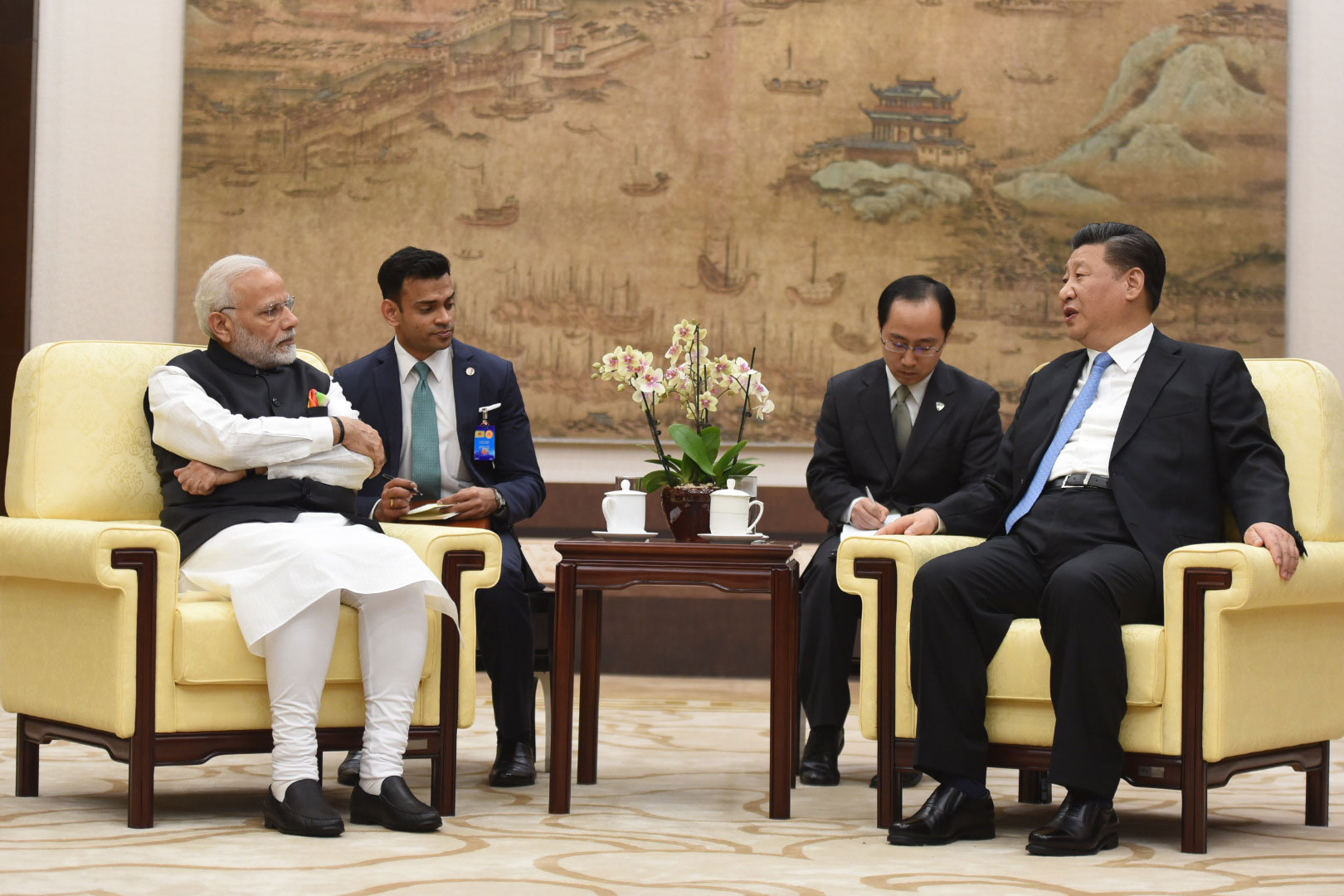In early July 2024, the SCO summit will be held in Astana, where the agenda calls for reviewing about 30 documents and signing a resolution on the accession of Belarus to the organization. The meeting’s declared motto is ‘Strengthening Multilateral Dialogue – Striving for Sustainable Peace and Development.’ In July, Kazakhstan will also be the venue for operational-tactical anti-terrorist exercises ‘Unification-2024.’ President Kasym-Jomart Tokayev suggested that Kazakhstan, a country that chairs the SCO in 2024, “adheres to the principle of indivisibility of Eurasian security, and this approach should form the basis of reaching the strategic task of forming a security belt around the SCO perimeter.”
Now as the world is going through a stage of dismantling the former West-centered system of international security, and the nations of the Global South are claiming the status of equal and sovereign world players, the SCO’s potential to become a platform for consolidation of non-Western forces is noticeably expanding. The list of countries interested in this format keeps growing, which undoubtedly bolsters the status and credibility of this institution. Russia and China, not only as nuclear powers, but also as permanent members of the UN Security Council, remain the key drivers in military and strategic terms. The presence of Russia and China’s own platform in the region, independent of the United States, consisting of Central Asian states, as well as India, Pakistan and Iran, certainly offers a counterweight to the Anglo-American military-strategic initiatives in Eurasia. However, as the SCO expands in membership and the international situation further deteriorates, the organization is now facing the task of clarifying its function in the field of security and filling this concept with relevant meanings. Whether regional stability is reduced to solving the problem of terrorism, or the concept of ensuring indivisible Eurasian security will also include other agenda items—such as countering the American scenario of militarizing the region, nuclear security, the fight against bioweapons, increasing institutional consolidation of the SCO member states, the possibility of developing a common position on a number of topical issues on the international agenda—is yet to be seen. All these issues, along with the existing challenges, will have to be addressed by the SCO in the new geopolitical environment.
In early July 2024, the SCO summit will be held in Astana, where the agenda calls for reviewing about 30 documents and signing a resolution on the accession of Belarus to the organization. The meeting’s declared motto is ‘Strengthening Multilateral Dialogue – Striving for Sustainable Peace and Development.’ In July, Kazakhstan will also be the venue for operational-tactical anti-terrorist exercises ‘Unification-2024.’ President Kasym-Jomart Tokayev suggested that Kazakhstan, a country that chairs the SCO in 2024, “adheres to the principle of indivisibility of Eurasian security, and this approach should form the basis of reaching the strategic task of forming a security belt around the SCO perimeter.”
The SCO: current trends
Ensuring Eurasian security amid increased geopolitical tensions is becoming an urgent task for key regional players and institutions. Sergey Lavrov argued the SCO members have a common desire to coordinate the organization’s actions in the UN and across the Eurasian space using institutions such as the EAEU, ASEAN and BRICS. Chinese Foreign Minister Wang Yi called on the SCO to take the region’s security into its own hands. Since its creation in 2001, the SCO has grown from a narrow regional bloc designed to ensure security along the perimeter of the post-Soviet states and China (the terrorist attacks on the U.S. in 2001 only accelerated this integration) to a structure that claims to be a comprehensive guarantor of Eurasian security. The framework was later joined by Iran, as well as by India and Pakistan, even if they are at loggerheads with each other. Belarus, far from the Asia-Pacific vicissitudes, is now seeking membership as well.
The list of SCO dialogue partner nations is much broader as it includes Armenia, Azerbaijan, Egypt, Turkey as well as a number of other players in the Global South from among the Arab and Asian states. Today, almost all countries of the Persian Gulf are represented in the Organization as dialogue partners, putting their trust in a non-Western regional project. In the midst of the BRICS expansion due to accession of the SCO partners, the Global South is gaining more and more institutionalized security and economic borders. In addition, the SCO includes four nuclear players, which means that the organization is actually becoming a guarantor of nuclear security in the Eurasian space.
While the SCO was more about protecting its member states from the growing terrorist threat posed by Afghanistan at the initial stage, the Afghan track now remains an important, but not the only, area of this institution’s efforts. The expanding list of countries involved indicates that the SCO is essentially claiming the status of an alternative to the North Atlantic project as a comprehensive guarantor of Eurasian security. The West’s insistence on promoting its vision of global security by imposing its own system of values and priorities prompts non-Western players to consider other opportunities to consolidate their efforts in confronting relevant challenges and threats. The SCO, despite differences between its members in terms of military and economic potential, has all the grounds for a successful detachment from the Western hegemony, given its military, economic, demographic and energy potential.
From the very beginning, the SCO Charter was based on the fundamental principle of cooperation in countering threats that are still relevant today – terrorism, separatism and extremism, as well as drug trafficking, transnational crime and illegal migration. In their foundational documents, the member states proceed from a list of principles, including mutual respect for sovereignty, non-interference in internal affairs, and rejection of unilateral military superiority in neighboring lands. It is these principles that distinguish the SCO from NATO and make it attractive to non-Western players with their critical perception of the U.S.-centric model of international relations and unwillingness to develop in the logic of a unipolar world order.
The year 2022 might well have been a new milestone in the history of this Organization. Whereas previously its goals and objectives, albeit specific, were difficult to verify in practice, after Russia launched its special operation in Ukraine—as a driver of change and the subsequent nullification of relations between Russia and the West—the SCO claimed the status of a regional security project comparable in importance to Western ones but respectful of international law. At the meeting with the secretaries of the Security Councils of the SCO member states in Astana, K.-J. Tokayev reiterated his country’s commitment to the principle of indivisibility of Eurasian security, which is fully in line with Russia’s fundamental foreign policy principles enshrined in the Foreign Policy Concept of 2023. For Kazakhstan, which went through a turbulent period with massive riots in January 2022, the issues of regional security and strengthening the SCO potential is no less important. Notably, its cooperation on security issues in the region has intensified in recent years. Thus, Kazakhstan took part in the first ever joint SCO and CIS anti-terrorist exercises in Eurasia in 2023, in parallel with joint exercises with Uzbekistan, called Kanzhar-2023, where, according to the legend, it was necessary to fight against an international terrorist organization that stepped up its game. At the end of 2023, the Combat Commonwealth exercise was held with military personnel from CIS member states involved.
The unfolding crisis in the international security architecture triggers regional integration, and the growing interest of non-Western players in the SCO fully reflects the current international trends of declining confidence in the institutions of the North Atlantic region. By joining the SCO, countries of the Global South demonstrate awareness of their unique identity and independence from “overseas” opinions, viewing this platform as their security priority.
Challenges for the SCO
In the meantime, the SCO, despite its growing relevance and activity in the anti-terrorist thrust, faces several fundamental challenges that will have to be addressed in the medium term.
First comes a further institutionalization of the association. Although the SCO is expanding and attracting more and more players (including, for example, Turkey, a NATO member), the effectiveness of its control and verification instruments at the institutional, rather than bilateral, level is still blurred. There is no doubt that the SCO is addressing the very urgent tasks of combating terrorism, including new forms of terrorism, but it does so primarily on a bilateral basis, whereas its unified security strategy has been rather shallow thus far.
Among key areas of the SCO’s activity is the Afghan issue, as one of the most acute from the regional stability perspectives. In 2023, following the summit in New Delhi, the SCO member states adopted a declaration where they advocated for the establishment of Afghanistan as an independent, united and neutral state. However, in practice, it is too early to speak of any final solution to the Afghan problem through the efforts of the SCO nations. First of all, this is due to differences in approaches of the member states to understanding how to interact with Afghanistan under the leadership of the Taliban (the movement is recognized as a terrorist organization and its activities are banned in the Russian Federation), whose rise to power in 2021 had complicated the already difficult process of consolidation within the SCO. To date, there has been virtually no progress on the issue of the inclusiveness of the Afghan government, despite the fact that the SCO member states have called for the formation of an ethnically inclusive Afghan government. The Taliban insist on recognizing the existing cabinet formed by the Taliban. The resolution of this issue is complicated by differences in the national interests of the SCO member states, with Tajikistan probably taking the most intransigent stance against the Taliban. In addition, the problem of legitimizing the Afghan authorities at the international level, as well as at the level of the SCO, whose member states do not recognize the current Afghan authorities, remains unresolved.
Second, as the list of member states expands, the SCO is becoming an increasingly heterogeneous organization, and we can observe growing contradictions between its members. The Indo-Pakistani territorial problem, border disputes between Tajikistan and Kyrgyzstan, and tensions around Iran are some of the more vivid examples. After Belarus joins the SCO, the organization will have a member that regards the problem of regional terrorism and extremism as relevant but not as urgent as for most other regional players.
In addition, a certain difference in the assessment of the SCO’s significance by Russia and China is apparent. For Russia, the SCO’s potential for Eurasian security is largely linked to its anti-Western discourse and forming a united front with China, India, and possibly Iran. The SCO, while failing to offer a consolidated position on the Russian special operation in Ukraine, still “tunes away from” the West-centric model in its rhetoric. Thus, it proposes alternatives not only in the sphere of security, but also in the sphere of economic development—reducing the dollar’s share in mutual settlements, increasing the volumes of trade turnover, convergence in the sphere of financial and banking institutions. And yet, the member states have not developed a common position on the anti-sanctions strategy, despite the fact that trade turnover between Russia and the SCO member states is growing.
For China, the SCO plays the role of a security guarantor of China’s ambitious Belt and Road Initiative (BRI), providing strategic support for infrastructure and logistics projects along the route. Undoubtedly, the SCO is also important for China in the context of having an alternative center of power in Asia to the United States (especially in view of the U.S. anti-China AUKUS initiative in the Asia-Pacific region), but this mission of the SCO has not become decisive for the Chinese leadership. Like Russia, China approaches security issues on the SCO platform more from the perspective of bilateral interaction. Beijing sees consensus in the Eurasian space as the elaboration of a common development strategy bolstered economically.
Third, blurring the SCO’s regional security functionality means that one cannot always see a clear boundary between the SCO and the CSTO, especially since a number of countries, including Russia, are members of both structures. Moreover, if we take the Central Asian track, it is the CSTO that remains the real guarantor of high-level security for the countries of the region in the face of current challenges and threats, while the SCO’s tools for protecting the national interests of its member states are not fully transparent. This was demonstrated by the events of January 2022 in Kazakhstan, and the appeal to the CSTO by Kyrgyzstan and Tajikistan, when the situation in the border region had aggravated.
* * *
Now as the world is going through a stage of dismantling the former West-centered system of international security, and the nations of the Global South are claiming the status of equal and sovereign world players, the SCO’s potential to become a platform for consolidation of non-Western forces is noticeably expanding. The list of countries interested in this format keeps growing, which undoubtedly bolsters the status and credibility of this institution. Russia and China, not only as nuclear powers, but also as permanent members of the UN Security Council, remain the key drivers in military and strategic terms. The presence of Russia and China’s own platform in the region, independent of the United States, consisting of Central Asian states, as well as India, Pakistan and Iran, certainly offers a counterweight to the Anglo-American military-strategic initiatives in Eurasia. However, as the SCO expands in membership and the international situation further deteriorates, the organization is now facing the task of clarifying its function in the field of security and filling this concept with relevant meanings. Whether regional stability is reduced to solving the problem of terrorism, or the concept of ensuring indivisible Eurasian security will also include other agenda items—such as countering the American scenario of militarizing the region, nuclear security, the fight against bioweapons, increasing institutional consolidation of the SCO member states, the possibility of developing a common position on a number of topical issues on the international agenda—is yet to be seen. All these issues, along with the existing challenges, will have to be addressed by the SCO in the new geopolitical environment.







